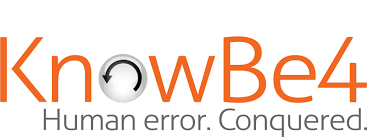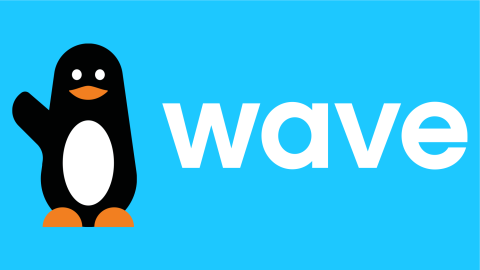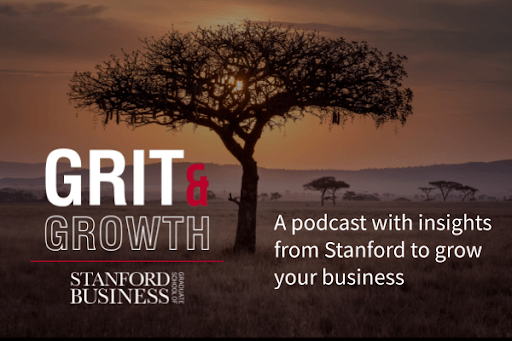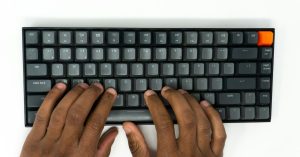
IN PARTNERSHIP WITH


Good morning ☀️ ️
TikTok is on a roll.
Last month, it was announced that the platform was the most downloaded app of 2020, overthrowing Facebook-owned apps like WhatsApp, Messenger, and Instagram with 2.6 billion downloads in total.
Now, it’s also taking Google’s spot as more people, in the US, are spending more time on TikTok than YouTube.
With net worth though, Facebook and Google are still leading as ByteDance, TikTok’s parent company, is valued at $180 billion while Facebook and Google are at $1.21 trillion and $237 billion, respectively.
In today’s edition:
- Wave is Francophone Africa’s first unicorn. Here’s how they made it
- M-PESA is Africa’s biggest FinTech with 50 million users across Africa
- How young African lawyers are driving change with tech
- Events: Lagos Blockchain Conference
EDITOR’S NOTE
On Monday, we published an article about OPay Nigeria being caught in the middle of money laundering accusations.
The story was first published by The Africa Report on Friday, September 3rd, 2021.
However, after a follow-up conversation with an OPay team member, we realized that the Nigerian fintech company was not involved in the money laundering scandal in any capacity. We’ve since taken the story down on our website and deleted all related social media posts.
- Koromone Koroye, Managing Editor.
WAVE IS FRANCOPHONE AFRICA’S FIRST UNICORN; HERE’S HOW THEY MADE IT
They say you never forget your firsts. Well, here’s a memorable first occurrence for us all.
Wave, a mobile-money service based in Senegal, has just become francophone Africa’s very first unicorn with a valuation worth $1.7 billion!
The latest valuation comes after it raised $200 million in a Series A round led by payments giant Stripe; Sequoia Heritage, a private investment fund and unit of Sequoia; Founders Fund; and Ribbit Capital, with participation from other existing investors.
Here’s another first: Wave’s latest funding round is the largest ever for a Series A funding. No other startup operating in Africa has raised as much Series A. OPay’s recent $400 million raise is the region’s largest venture round, followed by Interswitch’s $200 million investment from Visa and Flutterwave’s $170 million fundraise. All were Series C rounds.
How did they wave the competition off?
By being radically affordable.
Senegal is one of the fastest-growing mobile money markets in the world. When Wave piloted in the West African country in 2017, there were already a few companies in the country serving the mobile money market including Orange, Free, and Expresso Telecom.
But even with Orange controlling 50% of the telecom market share with nearly 8 million mobile users, or Free’s 4.4 million subscribers, none have been able to keep up with the wave of support the new unicorn gets.
Wave offers free deposits and withdrawals via its mobile application and applies a fixed transaction fee of just 1% for money transfers between individuals. Unlike its competitors, Wave passes additional fees on bill payments from users on to businesses. For users without a smartphone, it provides a free QR-card to transact with agents, who are able to open accounts, receive deposits, and execute withdrawals.
This business model has been so successful for Wave that it has forced its competitor, Orange, to make two pertinent moves: reduce its own bill payment fees to 1%, and stop its users from purchasing airtime through Wave’s mobile application.
Read more in Michael Ajifowoke’s How Wave became Francophone Africa’s first unicorn startup with 1% money transfer fee
Increase your online sales with a Paystack Storefront – a free, beautiful seller page that helps you bring creative ideas to life.
M-PESA HAS 50 MILLION USERS ACROSS AFRICA

Speaking of firsts and mobile money, M-PESA has just become Africa’s biggest Fintech with 50 million active users across the continent.
M-PESA was the earliest provider of mobile money services on the continent. It was founded in Kenya, in 2007, by Safaricom, as a peer-to-peer platform where users could send or receive money quickly through their mobile phones.
Its popularity spread because it offered access to the unbanked in Kenya. People without bank accounts could easily access funds whenever they needed it by following the same easy steps they purchased airtime through. Pesa is Swahili for money, and M stands for mobile, so even at kick-off, M-PESA knew it wanted to afford its users financial mobility.
There’s even a study from 2016 that suggests that access to M-PESA helped lift 194,000 Kenyans out of poverty.
A 98.8% market share
Over the years though, M-PESA has evolved to doing more.
Now, the platform is equipped with numerous features that help it provide financial services to private individuals, investors, and businesses. Anyone can use the platform to send and receive cash from over 200 countries while investors can use the platform to make bulk payments, and businesses can leverage M-PESA to process payments as well.
With MPawa or MShwari, customers can access loan options with flexible payback systems. M-Koba and Xitique, depending on the country, helps users access savings options. There’s even Halal M-PESA, a savings account that allows Muslims to save in compliance with Sharia laws!
All these features have helped M-PESA achieve a 98.8% market share in Kenya’s mobile money market, with 49.7 million customers in 2021.
In 2020 alone, the platform processed $15m in transactions and it now has 918,500 agents across seven countries, Kenya, Tanzania, Congo, Egypt, Mozambique, Ghana, and Lesotho.
The ripple wave of M-PESA’s success has affected Kenya so much that over 72% of its citizens have mobile money accounts, compared to Uganda’s 43%, Nigeria’s 5.6%, or South Africa’s 2%.
Zoom out: In East Africa, it seems like mobile money has helped aid financial inclusion for the underbanked. While the real bar to financial inclusion is reduced or nonexistent income, a lack of banking structures – formal and informal – also plays an important role. Inclusive financial structures aid mobility.
With a little bit of grit [and luck], maybe some startups can learn a thing or two from M-PESA’s success, and serve countries with large swatches of underbanked people.
KB4-CON EMEA is a free, highly engaging, cybersecurity-focused virtual event designed for CISOs, security awareness, and cybersecurity professionals in Europe, the Middle East, and Africa.
The event will be on Thursday, September 23rd and features keynotes from two of the most well-known figures in cybersecurity. Mikko Hyppönen will cover how our global networks are being threatened by surveillance and crime, and how we can fix our technical, and human, problems. Kevin Mitnick will reveal social engineering tradecraft and insights and wow you with a live hacking demonstration. You can register here.
HOW YOUNG AFRICAN LAWYERS ARE DRIVING CHANGE WITH TECH

Before the pandemic, it was compulsory for lawyers and clients to appear before a physical court of law or an advocate to initiate legal proceedings.
In Kenya or Nigeria, like in many other countries, that meant appearing before a judge wearing a robe and a wig. There could have been fewer institutions more steeped in tradition than the legal profession, and the wig-and-gown custom dates back to the colonial era where colonies imbibed their masters’ systems and practices.
Fast forward to 18 months post-pandemic, and the legal profession has made some very important strides.
What’s changed?
COVID brought a lot of changes to how we do things, especially at work. Work culture was influenced as people began to realize how much they could do from home, and how unnecessary the commute to and from work was.
The legal profession was not left out. Months of lockdown already threatened many sectors, but it was important that people realized that justice would always be available to them.
This came in form of virtual courtrooms where cases were presented and heard over teleconferencing apps like Zoom or Google Meet.
While it does mean there’ll be an adjustment period, considering internet and smartphone penetration across the continent, it also opens up the tech ecosystem to a number of developments.
What kind of tech is at the forefront?
Automated text messaging, legal tech apps and social media are emerging as key mediums used to offer legal services, consultations.
Kieti Law, with operations in Eastern and Southern Africa, for example, is preparing for the tech revolution by utilising all workable digital and tech tools to bring its services closer to clients. Kieti uses vlogs and podcasts to share information on emerging legal issues.
Anjarwalla & Khanna (A&K), a Kenyan law firm, partnered with Microsoft to launch a Legal Tech Incubator to support the development and promotion of innovative technology-based solutions to legal challenges and enhance law and legal practice in the continent.
Older platforms like Law Pavilion, a subscription-based service providing information on judicial precedents – decided cases – went a step further by launching an application called Primsol Lite which can be integrated into WhatsApp for electronic legal research.
One unsurprising thing about the new wave of legal tech revolution is that it’s been led by young entrepreneurs aged 30, and below.
Read more: Legal technology at the forefront of change in Africa
Meet intrepid entrepreneurs from Africa and South Asia, hear their stories of trial & triumph, and learn from business experts how to transform today’s challenges into tomorrow’s opportunities. Listen to Grit & Growth wherever you get your podcasts.
Events: Lagos Blockchain Conference of Value and Innovation

The Blockchain Nigeria User Group (BNUG) will be hosting its annual Blockchain Conference of Value and Innovation on September 11 and 12, on Victoria Island, Lagos.
The conference will explore how Blockchain, DeFi, and NFTs together with, IoT, AI and Virtual Financial Assets are altering and disrupting incumbents and creating new opportunities for forward-thinking individuals, nations, and organizations.
In partnership with the Fintech Association of Nigeria, the hybrid conference will feature speakers like Mr. Kashifu Inuwa Abdullahi—Director-General National Agency for TechnologyDevelopment (NITDA), Abubakar Suleiman – Managing Director at Sterling Bank, and Dr. Sarah Alade, SA to President on Finance and economy.
Find out more about the event here.
What else we’re reading
- Arise B.V has invested $75m in Ecobank in a landmark transaction to help the bank strengthen its reserves of profitable subsidiaries in West Africa.
- To raise awareness on air pollution, digital billboards in Nairobi have begun live streaming how much air pollution the city has at any given time.
- Bitcoin plunges by 17% as El Salvador officially becomes the first country to accept the cryptocurrency as its legal tender.
- Here’s how Amazon cloud services generate billions in profit.
- Zimbabwe will soon be requiring that all state employees get vaccinated, or resign from their jobs.




























